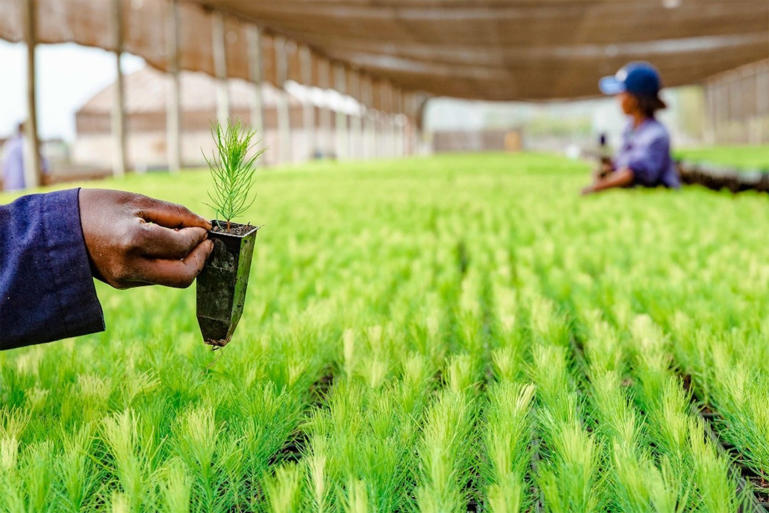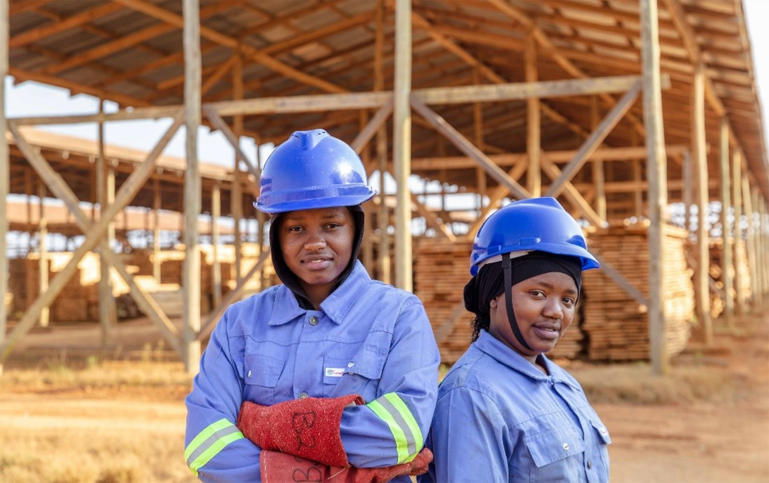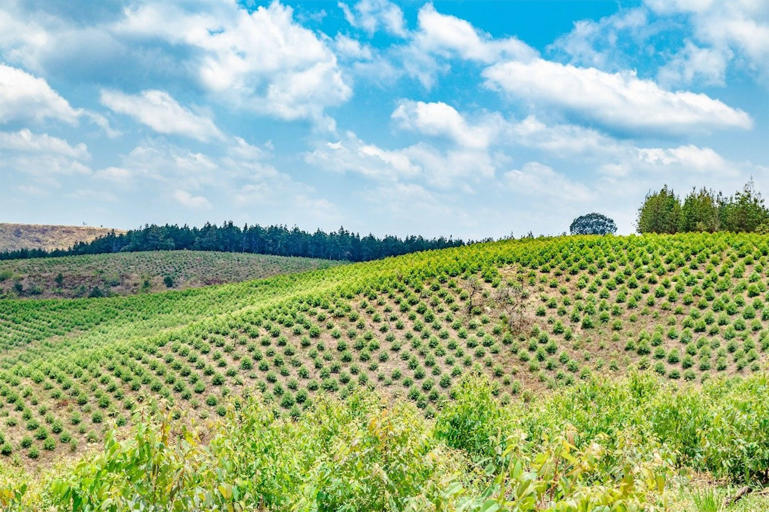Background
Africa is home to 17% of the world’s forests. Roughly 60 million people directly rely on these forests, while over 60% of Africa’s population indirectly depends on them. Sadly, the continent lost 4.4 million hectares of forest per year from 2015 to 2020.
Forests and landscapes are known for protecting wildlife from natural disasters and providing communities with shelter, food, fuel and other essential products and services. When their existence is threatened, human civilization pays the consequences.
As Africa’s economy and demand for timber both grow, a solution to protect its biodiversity-rich forests is vital. Forest conservation and restoration are critical to mitigating these pressing issues.
Innovative Partnership
Against this backdrop, New Forests, along with its three development finance institution (DFI) investment partners – British International Investment (BII), Norfund and Finnfund – have signed subscription agreements for their investment of USD $200 million in a dedicated African fund – the African Forestry Impact Platform (AFIP). This agreement follows an earlier announcement of intention made at the United Nations Climate Change Conference (COP26) in Glasgow for the group to partner to develop investment strategies designed to scale and transform the sustainable forestry sector in sub-Saharan Africa.
The four partners also announced AFIP’s first acquisition, Green Resources, which is East Africa’s largest forest development and wood processing company. Green Resources manages some 38,000 hectares of plantation forest throughout Mozambique, Tanzania and Uganda. Norfund and Finnfund have invested in Green Resources since 2019 and as part of the latest agreement, they have reinvested the capital from the sale of Green Resources into AFIP, while attracting new capital from BII.
Headquartered in Australia, New Forests has been managing forestry assets for nearly 20 years, and recognizes the DFI partnership as an excellent cornerstone investment for AFIP to help scale and transform the forestry sector in sub-Saharan Africa. New Forests looks to leverage this partnership to attract private capital, although securing institutional investments comes with its own set of challenges. Unlike developed markets, where there is a more substantial likelihood for scalability, the plantation market in sub-Saharan Africa has yet to reach a similar risk-return profile and scale. Instead, plantation assets operate in silos, unable to realize attractive financial returns and social impact without significant risks, specifically reputational risks.
By combining capacity and management units, AFIP aims to show how to turn plantation forestry in sub-Saharan Africa into an asset class that can attract private investment. Since AFIP also seeks ambitious social and environmental returns, the platform is an open-ended vehicle attracting permanent capital, with the goal of finding a long-term solution to address some of the historical forestry investment-related challenges in Africa by operating a landscape approach. New Forests is exploring other forms of capital (such as impact and catalyst capital) to further invest at a landscape level. This approach would relieve the plantation forestry business from needing to invest a significant percentage of its annual budget to achieve environmental and social outcomes, which the catalytic capital investment could help achieve.
While New Forests is eager to pursue this approach, as the fund manager, it recognizes that deploying alternative finance at scale requires a specific skillset. Given its risk appetite, large portfolio and the level of due diligence required for each company to deliver social and environmental outcomes at a landscape level, New Forests is exploring partnerships with private sector partners who share their vision and who could help deploy the catalytic capital and achieve the expected impact.
Solution
AFIP aims to help reduce increased pressure placed on forests in Africa while supporting the sustainable growth of the plantation forest sector. It seeks to achieve these goals through initiatives that support forest conservation, degraded land restoration and the expansion of community-based forestry programs. Furthermore, AFIP offers a clear pathway to sustainable landscapes, improving production systems while ensuring conservation. AFIP also aims to increase funding for nature-based solutions, grow the supply of sustainable wood, restore natural capital and improve local job opportunities.
Over the next two to three years, AFIP aims to raise USD $500 million to support the sustainability and development of Africa’s expanding forestry sector. This is in line with its goals to secure long-term institutional capital. By investing in a portfolio of plantation forestry operating companies and related assets in sub-Saharan Africa, AFIP can target established assets that it expects will offer stable and predictable cash flows across diversified markets. It is important to note that any carbon revenue on top on this strategy would be additional. Against this background, AFIP is currently focusing on consolidation, showing that there is a reliable market, that the strategy is scalable and that it can minimize risks through scale.
AFIP will also draw on technical assistance from Partnerships for Forests, a UK Foreign, Commonwealth & Development Office funded program. Partnerships for Forests will work closely with AFIP to identify and develop new business models that work for plantations, while generating tangible returns for investors and delivering social and environmental value to smallholders and other landscape stakeholders.
Expected Impact
AFIP aims to address two social and two climate impact targets that are directly linked to its carried interest at year 10:
- Biodiversity (increase quality habitat by 14%);
- Carbon sequestration (reduce emissions and increase 2.26 million tons net);
- Gender (80% of the portfolio needs to be compliant with 2X Global’s 2X Challenge criteria);
- Improved and alternative livelihoods (increase the number of livelihoods improved or alternative ones provided by 14%).
AFIP plans to create a baseline for each new investment across all four impact targets, followed by an approved methodology. It will cap the portfolio at year four and measure it again at year 10.
Sources:
- 2X Global (n.d.). 2X Challenge: Criteria.
- British International Investments (BII) (2022). We’re investing in the African Forestry Impact Platform. 19 October 2022. https://www.bii.co.uk/en/news-insight/news/new-forests-announces-first-investors-in-african-forestry-impact-platform-and-inaugural-acquisition/
- Finnfund (2022). First investors in African Forestry Impact Platform announced. 20 October 2022.
- New Forests (2022). New Forests announces first investors in African Forestry Impact Platform and inaugural acquisition. October 2022.
- Norfund (n.d.). New platform will scale sustainable forestry in Africa.
- Interview with Stephanie Bishop (Environmental and Social Associate Director), New Forests.



